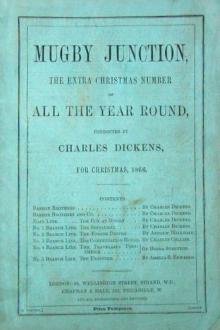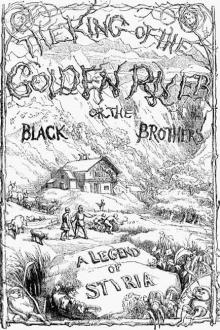Genre Fiction. Page - 202

ice was sharpened as from anxiety. "Won't you come and see him about the petrol?"
He looked at her curiously. The smile had gone from her lips, and her face was pale. She was frowning, and in her eyes there showed unmistakable fear. She was not looking at him, and his gaze followed the direction of hers.
The driver had come out of the shed, the same dark, aquiline-featured man as had passed him on the bridge. He had stopped and was staring at Merriman with an intense regard in which doubt and suspicion rapidly changed to hostility. For a moment neither man moved, and then once again the girl's voice broke in.
"Oh, there is father," she cried, with barely disguised relief in her tones. "Come, won't you, and speak to him."
The interruption broke the spell. The driver averted his eyes and stooped over his engine; Merriman turned towards the girl, and the little incident was over.
It was evident to Merriman that he had in some way put his foot in it, how he could not imagine, un

House of Coombe who asked the first question about her.
"What will you DO with her?" he inquired detachedly.
The frequently referred to "babe unborn" could not have presented a gaze of purer innocence than did the lovely Feather. Her eyes of larkspur blueness were clear of any thought or intention as spring water is clear at its unclouded best.
Her ripple of a laugh was clear also--enchantingly clear.
"Do!" repeated. "What is it people 'do' with babies? I suppose the nurse knows. I don't. I wouldn't touch her for the world. She frightens me."
She floated a trifle nearer and bent to look at her.
"I shall call her Robin," she said. "Her name is really Roberta as she couldn't be called Robert. People will turn round to look at a girl when they hear her called Robin. Besides she has eyes like a robin. I wish she'd open them and let you see."
By chance she did open them at the moment--quite slowly. They were dark liquid brown and seemed to be all lustrous iris which

rd and dusted with his own hands every morning before varnishing his boots) I notice him as full of thought and care as full can be and frowning in a fearful manner, but indeed the Major does nothing by halves as witness his great delight in going out surveying with Jemmy when he has Jemmy to go with, carrying a chain and a measuring-tape and driving I don't know what improvements right through Westminster Abbey and fully believed in the streets to be knocking everything upside down by Act of Parliament. As please Heaven will come to pass when Jemmy takes to that as a profession!
Mentioning my poor Lirriper brings into my head his own youngest brother the Doctor though Doctor of what I am sure it would be hard to say unless Liquor, for neither Physic nor Music nor yet Law does Joshua Lirriper know a morsel of except continually being summoned to the County Court and having orders made upon him which he runs away from, and once was taken in the passage of this very house with an umbrella up and the Majo

the go-horse was in position, and thus steadied it admirably with this hint taken direct from the workmanship of the Great Carpenter.
There came a day when the horse was finished and the last coat of paint had dried smooth and hard. That evening, when Nebby came running to meet Zacchy, he was aware of his Grandfather's voice in the dusk, shouting:--"Whoa, Mare! Whoa, Mare!" followed immediately by the cracking of a whip.
Nebby shrilled out a call, and raced on, mad with excitement, towards the noise. He knew instantly that at last Granfer had managed to catch one of the wily Sea-Horses. Presumably the creature was somewhat intractable; for when Nebby arrived, he found the burly form of Granfer straining back tremendously upon stout reins, which Nebby saw vaguely in the dusk were attached to a squat, black monster:--
"Whoa, Mare!" roared Granfer, and lashed the air furiously with his whip. Nebby shrieked delight, and ran round and round, whilst Granfer struggled with the animal.
"H

father said, pressing the fingers of her unoccupied hand. "Now, if you could find a clean cloth to bandage it--"
She looked about the place, somewhat hopelessly. Her expedition to the main part of the house, when she had found the water pail, had not reassured her as to the housekeeping of the Eldens. Her father read her perplexity.
"It seems as though you would be in charge here for awhile, Reenie," he said, "so you will save time by getting acquainted at once with your equipment. Look the house over and see what you have to work with."
"Well, I can commence here," she answered. "This is Dave's room. I suppose I should say Mr. Elden's, but--what was it he said about 'mistering'? It would be splendid if it were cleaned up," she continued, with kindling enthusiasm. "These bare logs, bare floors, bare rafters--we've got back to essentials, anyway. And that's his bed." She surveyed a framework of spruce poles, on which lay an old straw mattress and some very grey blankets. "I suppose he is v

must have some name in going about, for people to pick up," heexplained to Mugby High Street, through the Inn window, "and that name atleast was real once. Whereas, Young Jackson!--Not to mention its being asadly satirical misnomer for Old Jackson."
He took up his hat and walked out, just in time to see, passing along onthe opposite side of the way, a velveteen man, carrying his day's dinnerin a small bundle that might have been larger without suspicion ofgluttony, and pelting away towards the Junction at a great pace.
"There's Lamps!" said Barbox Brothers. "And by the bye--"
Ridiculous, surely, that a man so serious, so self-contained, and not yetthree days emancipated from a routine of drudgery, should stand rubbinghis chin in the street, in a brown study about Comic Songs.
"Bedside?" said Barbox Brothers testily. "Sings them at the bedside? Whyat the bedside, unless he goes to bed drunk? Does, I shouldn't wonder.But it's no business of mine. Let me see. Mugby Junction, MugbyJ

ained breath. "That engineer will bedown here to take charge as soon as the six o'clock stage comes in.He's an oldish chap, has got a family of two daughters, and--I--am--d----d if he is not bringing them down here with him."
"Oh, go long!" exclaimed the five men in one voice, raisingthemselves on their hands and elbows, and glaring at the speaker.
"Fact, boys! Soon as I found it out I just waltzed into that Jewshop at the Crossing and bought up all the clothes that would belikely to suit you fellows, before anybody else got a show. Ireckon I cleared out the shop. The duds are a little mixed instyle, but I reckon they're clean and whole, and a man might face alady in 'em. I left them round at the old Buckeye Spring, wherethey're handy without attracting attention. You boys can go therefor a general wash-up, rig yourselves up without saying anything,and then meander back careless and easy in your store clothes, justas the stage is coming in, sabe?"
"Why didn't you let us know earlie

eet lightning), lest his concentrated look (the thunderbolt) should reduce the universe to ashes.... His watery parentage, and the storm-god's relationship with a swan-maiden of the Apsarasas (typifying the mists and clouds), and with Freydis the fire queen, are equally obvious: whereas Niafer is plainly a variant of Nephthys, Lady of the House, whose personality Dr. Budge sums up as 'the goddess of the death which is not eternal,' or Nerthus, the Subterranean Earth, which the warm rainstorm quickens to life and fertility."
All this seems dull enough to be plausible. Yet no less an authority than Charles Garnier has replied, in rather indignant rebuttal: "Qu'ont étè en réalité Manuel et Siegfried, Achille et Rustem? Par quels exploits ont-ils mérité l'éternelle admiration que leur ont vouée les hommes de leur race? Nul ne répondra jamais à ces questions.... Mais Poictesme croit à la réalité de cette figure que se

ling-pin no sooner touched the cap, than it flew out of Schwartz's hand, spinning like a straw in a high wind, and fell into the corner at the further end of the room.
"Who are you, sir?" demanded Schwartz, turning upon him.
"What's your business?" snarled Hans.
"I'm a poor old man, sir," the little gentleman began very modestly, "and I saw your fire through the window, and begged shelter for a quarter of an hour."
"Have the goodness to walk out again, then," said Schwartz. "We've quite enough water in our kitchen, without making it a drying house."
"It is a cold day to turn an old man out in, sir; look at my grey hairs." They hung down to his shoulders, as I told you before.
"Ay!" said Hans, "there are enough of them to keep you warm. Walk!"
"I'm very, very hungry, sir; couldn't you spare me a bit of bread before I go?"
"Bread, indeed!" said Schwartz; "do you suppose we've nothing to do with our bread, but to give it to such red-nosed fellows as you?"

the murder was not lacking.
My narrative in "The Night of Hate" is admittedly a purely theoretical account of the crime. But it is closely based upon all the known facts of incidence and of character; and if there is nothing in the surviving records that will absolutely support it, neither is there anything that can absolutely refute it.
In "The Night of Masquerade" I am guilty of quite arbitrarily discovering a reason to explain the mystery of Baron Bjelke's sudden change from the devoted friend and servant of Gustavus III of Sweden into his most bitter enemy. That speculation is quite indefensible, although affording a possible explanation of that mystery. In the case of "The Night of Kirk o' Field," on the other hand, I do not think any apology is necessary for my reconstruction of the precise manner in which Darnley met his death. The event has long been looked upon as one of the mysteries of history - the mystery lying in the fact that whilst the house at Kirk o' Field was destroyed by an e